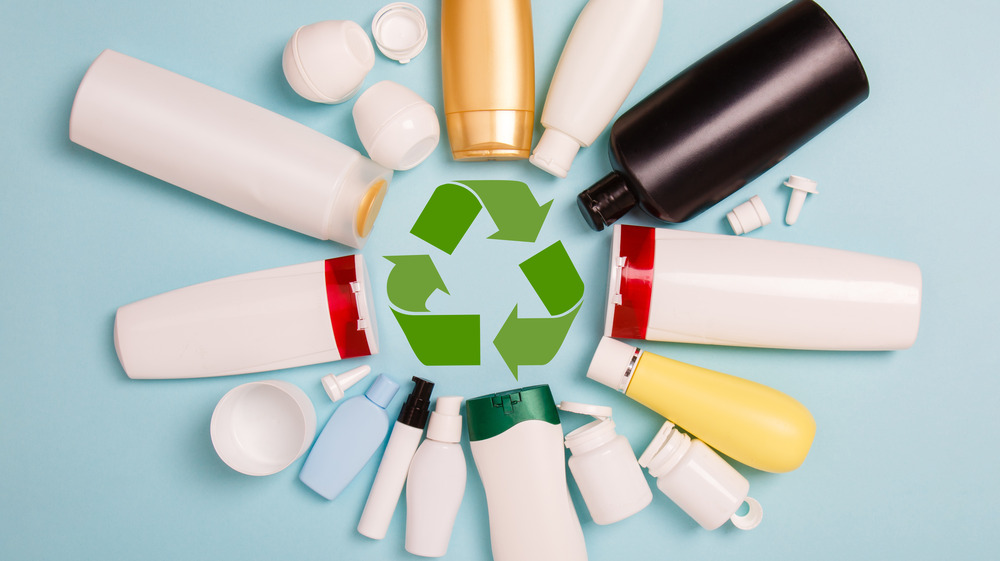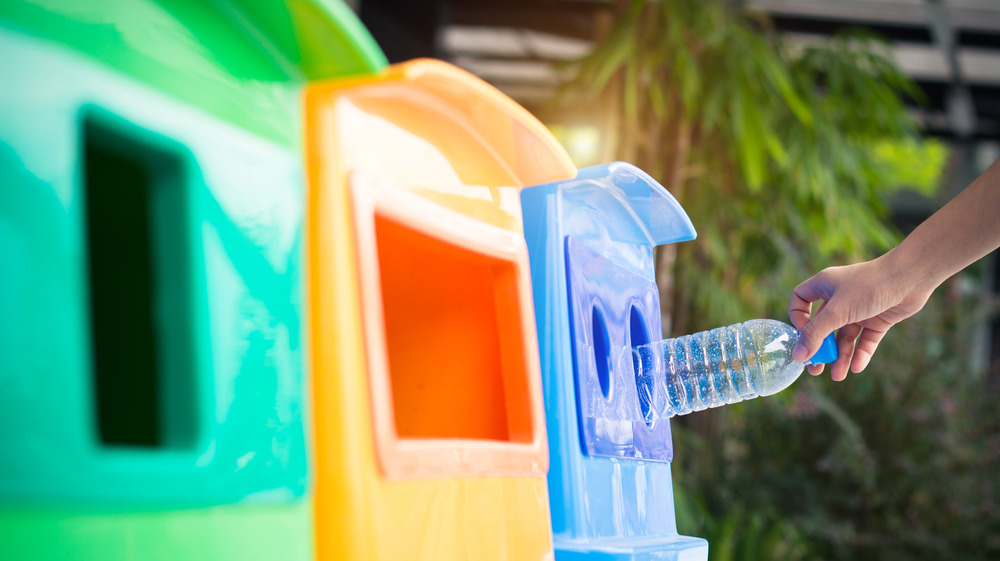What The Recycling Symbol On Your Plastic Bottle Really Means
Have you ever noticed the tiny triangle containing a numeral on the bottom of a plastic product? If you're a recycler, the numbers matter. Here is a guide to what those little numbers on the bottom of plastic recyclables actually mean.
As Food Network notes, the small triangles containing numbers 1-7 on the bottom of plastic items are there for a very specific reason. Each denotes what kind of plastic the item is made from, which directly correlates to how — or if — the vessel can be recycled. So let's break down some of these types of plastics.
According to Food Network, flimsy plastic (like what a single-use water bottle would be made of) will have a 1 on the bottom. That signifies the plastic is made of "Poly(ethylene terephthalate)" (via Food Network). The Balance Small Business notes that "salad dressing, peanut butter, vegetable oil containers, and mouthwash bottles" are other common examples of products that will have that 1 on the bottom to aid in recycling.
When you flip over a container and see a 2 in the triangle, The Balance Small Business says that marks "high-density polyethylene, or HDPE." This plastic is a little more heavy-duty — think milk jugs and shampoo bottles.
What the numbers mean when it comes to recycling
The tricky thing, as Food Network points out, is that what can be recycled and how to do it varies from town to town. So if you've been throwing all plastics into your recycling bin, it may be the case that some of those objects don't actually get reused. Food Network, however, adds that most cities have a website that can direct the well-wishing-recycler on how to best reduce, reuse, and recycle in their region.
As far as recycling goes, products with a 1 or 2 are the most widely accepted. According to The Balance Small Business, these two types of plastic can be recycled into anything from pens and drainage pipes to carpet and clothing fibers (and, of course, new bottles and containers). As the numbers get higher, so does the likelihood the item is more complicated to reuse. Number 4, for example, is that pesky plastic made into shopping bags (among other things) that are available at virtually every store and is rarely recyclable, says The Balance Small Business.
So next time you are tossing plastic into a recycling bin, check out the number to make sure you're recycling responsibly!

